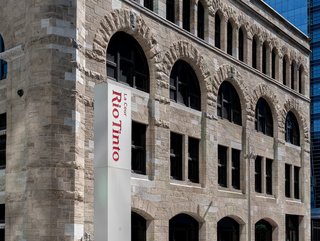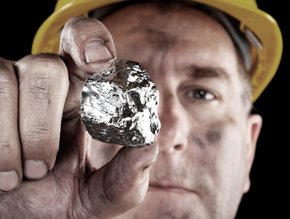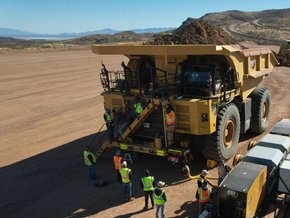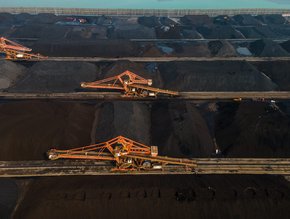Rio Tinto and China Baowu collaborate for low-carbon shift

Rio Tinto, the world's largest iron ore producer, and State-owned China Baowu Steel Group, the world's biggest steelmaker, have signed a memorandum of understanding to explore a range of industry-leading projects to help decarbonise the steel value chain in China and Australia.
Under the MoU, the two companies will drive the industry's transition towards a low-carbon future by advancing specific decarbonisation projects. This will include researching, developing, and demonstrating a pilot-scale electric melter at a Baowu-owned steel mill in China, optimising pelletisation technology for ores produced in Australia, and advancing China Baowu's HyCROF technology, which is designed to reduce CO₂ emissions from the blast furnace process. In addition, the two companies will jointly investigate opportunities for low-carbon iron production in Western Australia.
China Baowu said in a press statement that "it is committed to working with Rio Tinto to jointly study and provide low-carbon and comprehensive green solutions for the steel value chain, help the low-carbon transformation and upgrade of the steel industry chain, and support the world to address the challenge of climate change with pragmatic actions."
Committing to a low-carbon transition
Rio Tinto and China Baowu have a long history of collaboration spanning over 50 years, making it possible to commit resources and expertise to execute these innovative projects in the steel value chain.
Rio Tinto's Chief Commercial Officer Alf Barrios said, "Rio Tinto and China Baowu are committed to accelerating the delivery of low-carbon solutions for the entire steel value chain. This MoU aims to address one of the biggest challenges faced by the industry – developing a low-carbon pathway for low-to-medium grade iron ores, which account for the vast majority of global iron ore supply.
As the backbone of the global economy, the mining industry is responsible for 4 to 7 percent of greenhouse-gas (GHG) emissions globally. As such, decarbonising the steel value chain is a critical part of this transition because steel has the highest emissions intensity of any material, so reducing its carbon footprint is essential to reach global climate goals.
Is Rio Tinto leading the pack?
Rio Tinto also announced its plans to invest US$1.1bn to expand its low-carbon AP60 aluminium smelter at Complexe Jonquière in Quebec, Canada. The investment, which includes up to US$113m in financial support from the Quebec Government, will install 96 new AP60 pots to increase the smelter's annual capacity by approximately 160,000 metric tonnes.
The AP60 smelting technology, which is among the most efficient and lowest commercially available carbon technology, was developed by Rio Tinto's R&D teams. Combined with the hydropower used at Rio Tinto's operations in Canada, it generates one-seventh of greenhouse gases per tonne of aluminium compared with the industry average and half the emissions compared to the technology currently used at the Arvida smelter.1
Asides from generating up to 1,000 jobs during the peak of construction, the expanded smelter will enable Rio Tinto to continue meeting customers' demand for low-carbon, high-quality aluminium for transportation, construction, electrical and consumer goods.






